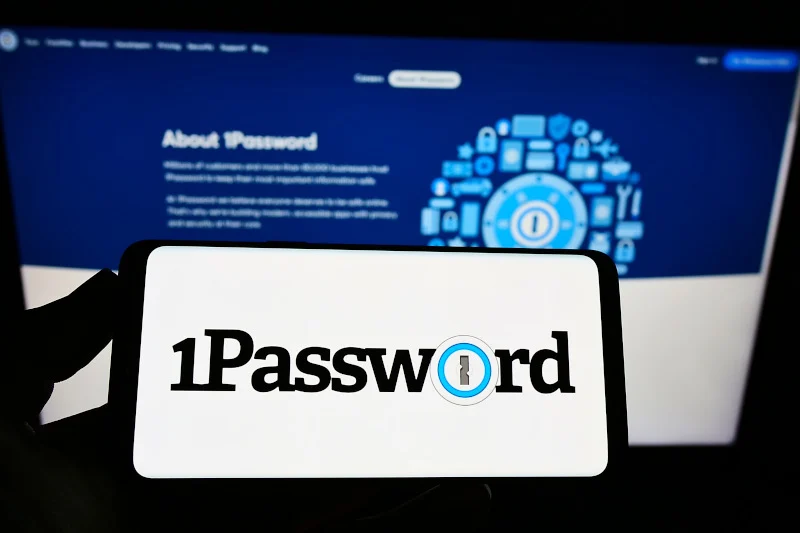Examples of One Password Managers:
One password login Several popular password managers can help you simplify your online security. Some examples include LastPass, Dash lane, and 1Password. These password managers offer password generation, auto-fill, and secure storage features. Each manager has unique features and interfaces, so it’s worth exploring different options to find the one that best suits your needs. Remember, using a password manager is a great way to keep all your passwords secure and easily accessible.
Why Multiple Passwords Are a Problem
Remembering multiple passwords for each of your online accounts can be a hassle. It is easy to forget or mix up passwords, leading to frustration and time wasted trying to recover them. Moreover, using the same password for multiple accounts risks your security. If one account gets compromised, all your other accounts are vulnerable too. This section will explore why multiple passwords are problematic and their associated risks. Let’s dive in!
Benefits of Using One Password login:
- It also enhances your security.
- With one password login, you can save time and frustration.
- 1 password login is the ease of managing your online presence.
- 1 password login eliminates the need for password recovery or reset processes.
- Using one password login simplifies your life by allowing you to access your accounts with a single password.
- No more racking your brain for a unique password for each new registration. Instead, you can use your trusted password to create new accounts quickly and securely.
How to Create A Strong Password Login?
- It helps you create a password that is secure and easy to remember.
- First, avoid using common words or phrases as your password. Hackers often use software that can quickly guess common passwords, such as “password” or “123456789”. Instead, create a password that combines uppercase and lowercase letters, numbers, and specific characters. For example, you could use a phrase that is meaningful to you and convert it into a password by substituting letters with numbers or symbols. For instance, instead of “I love cats”, you could use “1L0v3C@ts!”.
- Next, make your password long. The longer password is more secure. Aim for a minimum of eight characters, but consider using even more. Longer passwords are more difficult to crack, as more possible combinations exist.
- Avoid using personal information, such as your name, date of birth, or address, as part of your password. Hackers can easily find this information online, making it easier for them to guess your password.
- Another step is to use one password login for your online accounts. While it may be tempting to reuse passwords for convenience, it’s a security risk. If one of your accounts gets compromised, all of your accounts could be at risk. Using a unique password for each account provides an extra layer of security.
- Lastly, consider using a passphrase instead of a password. Passphrases are longer combinations of words that are easier for you to remember but harder for others to guess. For example, instead of using a single word like “sunshine”, you could use a passphrase like “Ilove2walkonthesunshine!”.
- Following these steps, you can create a strong and secure password that helps protect your online accounts. Remember to update your passwords and never share them with others regularly. Stay safe online!
How to Use a Password Manager?
- Using a password manager is a simple and effective way to keep all your passwords organized and secure:
- Choose a reputable password manager tool that suits your needs. Install the password manager on your device and create a master password that is strong and unique.
- Use the password manager to generate and store complex passwords for all your accounts.
- Let the password manager autofill your login information whenever you visit a website or app.
- With a password manager, you’ll never have to remember multiple passwords again!
Conclusion:
In conclusion, using a one password login is a game-changer for simplifying your online life and no more struggling to remember multiple passwords or wasting time on password recovery. You can securely access all your accounts with one solid and unique password. And by using a password manager, you can ensure that your passwords are stored safely and easily accessible whenever you need them. So say goodbye to password stress and hello to convenience and security. Simplify your life with a one-password login, and never look back! Stay safe and enjoy the ease of managing your online presence.
Frequently Asked Questions
1. How often should I change my password?
It is generally recommended to change your passwords every few months. Regularly updating your passwords adds an extra layer of security and reduces the risk of unauthorized access to your accounts.
2. Are longer passwords always better?
Yes! Longer passwords are generally more secure than shorter ones. Aim for a minimum of eight characters. However, the longer, the better. Mix in a combination of letters, numbers, and special symbols to make it even stronger.
3. What’s the deal with two-factor authentication?
Two-factor authentication (2FA) adds a security step to the login process. It typically involves providing a second verification form, such as a unique code sent to your phone or email. It’s highly recommended to enable 2FA whenever available to add an extra layer of protection to your accounts.
4. Can I reuse passwords across different accounts?
While it may be tempting to reuse passwords for convenience, it’s not recommended. Reusing passwords puts all your accounts at risk if one of them gets compromised. Creating unique passwords for each performance is best to ensure maximum security.
5. How do I remember all my different passwords?
That’s where password managers come in handy! Password managers securely store all your passwords in one place, allowing you to access them quickly whenever needed. They often have password generation and auto-fill features to simplify your life.

